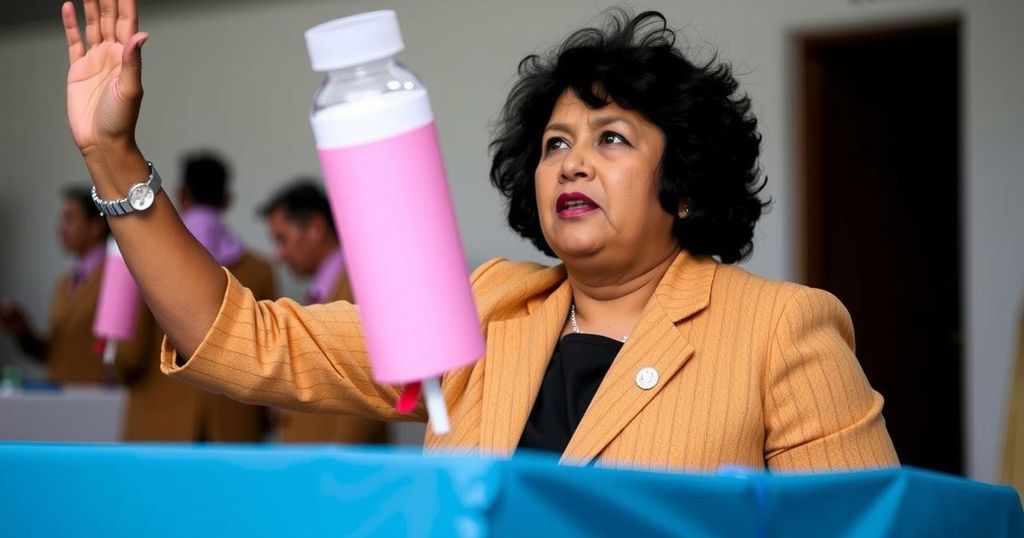Politics
ANDRES MANUEL LOPEZ OBRADOR, ASIA, ASSOCIATED PRESS, BOLIVIA, CONSTITUTIONAL COURT, CORRUPTION, CUBA, DEMOCRACY, EL SALVADOR, ELECTIONS, EV, EVO MORALES, GOVERNANCE, LATIN AMERICA, LOPEZ OBRADOR, LUIS ARCE, MEXICO, NORTH AMERICA, PHILIPPINES, SOUTH AMERICA, THE ASSOCIATED PRESS
Marcus Li
0 Comments
Bolivia’s Judicial Elections: A Test of Democracy Amid Political Tensions
Bolivia is preparing for its third judicial election amidst concerns about political influence and public apathy. Unique in the world, Bolivia’s system allows citizens to vote for top judges, yet skepticism prevails due to past experiences of low turnout and alleged politicization. Facing postponed voting due to political rivalries, only four of the nine judges will be elected this cycle, raising legitimacy questions surrounding the elections and their impact on democracy.
Bolivia is set to conduct its third bout of judicial elections, a rare practice that allows citizens to vote for the nation’s top judges. Campaigning is officially banned, yet candidates find creative avenues to promote themselves through various means, such as branding snacks and including campaign slogans in voting materials. As the only country globally to undertake such judicial elections, Bolivia’s system has faced scrutiny, growing public discontent, and concerns regarding political influence over judicial integrity.
The elections, initially scheduled for late 2023, were postponed amid political tensions between President Luis Arce and former President Evo Morales, exacerbating citizens’ frustrations. Many Bolivians express apathy towards this election cycle, reflecting on previous voting experiences that saw low participation due to distrust in the integrity of the candidates provided, largely pre-selected by political elites. This election features only a partial election of four out of nine seats on the powerful Constitutional Court—raising further questions about its legitimacy.
Given the historical context where judicial elections have been characterized by political patronage, there is growing concern that such practices may undermine democracy across Latin America. This has caught the attention of international observers, including those from Mexico, as similar reforms are on the horizon in their judicial system, following recent legislative changes. As Bolivia approaches the pivotal vote, the ramifications of these elections may definitively influence the future of its judiciary and broader democratic processes.
The topic of Bolivia’s judicial elections is pivotal to understanding the intersection of democracy and judicial integrity within the country. Bolivia stands out as the only nation currently engaging in popular votes for its top judges, a system established in the past decade, yet met with widespread criticism. Experts argue that such elections can politicize the judiciary and compromise its role as a neutral arbiter. The context is further complicated by rising tensions between political factions, particularly between current President Luis Arce and his predecessor, Evo Morales, as they struggle for control over their political party and influence over the judiciary. The recent postponement of the elections reflects these tensions and raises alarms about the health of Bolivia’s democratic institutions.
In conclusion, Bolivia’s upcoming judicial elections symbolize a contentious evolution of its political landscape, marked by profound public skepticism towards a system perceived as politically manipulated. As only a fraction of judicial posts are available for election, the legitimacy of the wholly elected judiciary remains under scrutiny. With influential historical precedents and impending reforms in parallel nations, the implications of these elections could reverberate throughout Latin America’s approach to judicial governance and the safeguarding of democracy.
Original Source: www.voanews.com




Post Comment